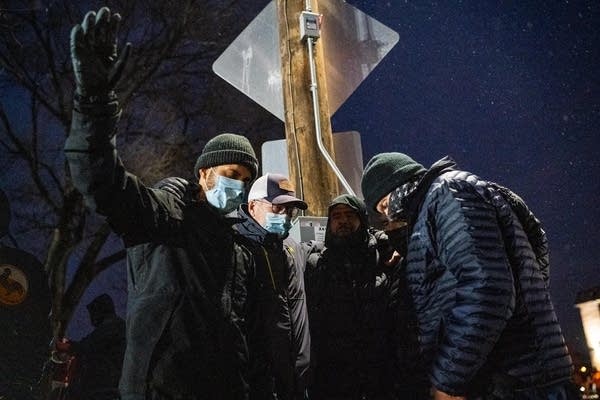Police standards board calls for changes in response to protests

People gather in prayer during a protest over the killing of Daunte Wright takes place at the Brooklyn Center Police Department in Brooklyn Center, Minn., on April 13.
Evan Frost | MPR News
Go Deeper.
Create an account or log in to save stories.
Like this?
Thanks for liking this story! We have added it to a list of your favorite stories.


